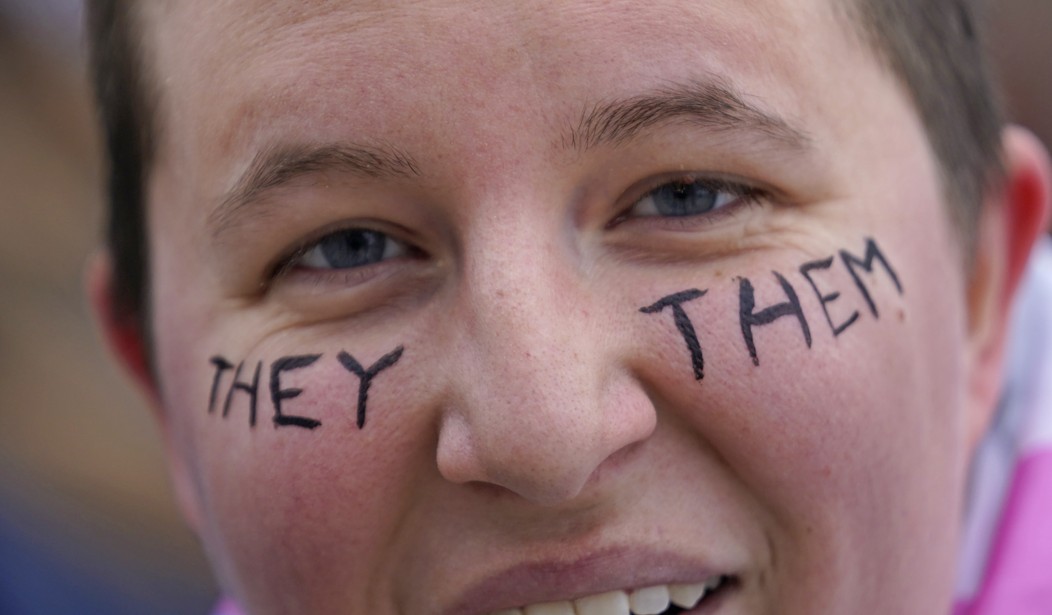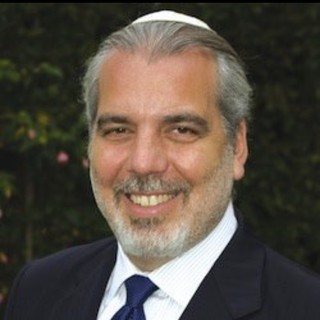It has become the latest fad for people to identify themselves both orally and in writing by pronouns. He/him, she/her, and the even more disturbing “he/she/we” or “they/them.” It is almost commonplace (certainly in places like California) to say that a person is “gender-fluid” or “non-binary,” so much so that CNBC is writing about a movement to prevent discrimination against pronoun people in the workplace, where businesses are rejecting their resumes.
Are they really being rejected by businesses? And if so, should they be? Before even answering those questions, there is an objective reality that needs to be pointed out: Individuals who call themselves “gender-fluid,” “non-binary,” or “we/they/them/” are idol worshippers in the truest sense of the term.
If that seems extreme, let’s examine what idolatry really is and why it is so dangerous to society.
Idol worship is repeatedly prohibited in the Bible, using the Hebrew phrase avodah zara, which literally means “strange worship.” Simply understood, this forbidden concept attributes deific qualities to anything other than God, including idols, stars, and/or human beings.
And this is exactly what every person who self-identifies as gender-fluid and we/they/them is doing.
We are not talking about sexual preferences, which can be fluid and, at any given time, could be straight, gay, or bi. This is about a person’s gender—their genitalia, and just as important, the chromosomes with which God created them. No matter how a person self-identifies, he or she can’t gain or lose a Y chromosome. But why is this idolatry?
There is a qualitative difference between those with gender dysphoria who believe they are a different gender than the one they were born into and the pronoun people who claim to be gender-fluid and we/they/them. The first group is struggling with an internal truth that contradicts their external reality. The pronoun people of we/they/them who consider themselves to be gender-fluid and more than single individuals are actually dangerous. It is these we/they/them pronoun people who are truly practicing idol worship.
People are individual human beings, created with specific distinctions from every other human being. It is these distinctions that make each of us unique. The Talmud teaches that “Humans stamp many coins with one seal and they are all alike, but the King of Kings, God, has stamped every human with the seal of the first man, but they are all different.”
It is a divine gift that we are distinct, created as single individuals. The only time in human history that an individual is called in the plural form is the royal “we” used by ancient kings, who viewed themselves as the physical incarnation of God. People of faith have always recognized the problem with that, as there is only one King of Kings, and we do not worship any human ruler as a deity. Those who consider themselves we/they/them are acting like the kings of history, and their self-identifying language reflects their belief in their own godliness. But just because someone calls himself king, queen, messiah, or God does not make it so.
Moreover, if we look at the Hebrew name of God (Yod, Hey, Vav, Hey; often called Yahweh or Jehovah), we find that God’s name is a linguistic combination of both masculine and feminine. The first letter adds a male conjugation, and the last adds a simultaneous female conjugation. Only God combines both masculine and feminine fully. The Deity is more than any individual could possibly conceive of or be.
But the pronoun people have convinced themselves that they are actually deities. They have chosen to define themselves as both genders, entirely ignoring the single gender that was given to them by God. They have set themselves up as idols who have the personal ability to change physical reality simply with their words. This is indeed a form of “strange worship.”
This delusion would be unimportant if not for two things that spring from it. The first involves the problems we see arising when anyone else points out that they are not deities and their words are meaningless. The common reaction from these pronoun people is anger and even violence when they are not recognized by others as deific—to such an extent that they push for laws and punishment for anyone with the nerve to expose their delusions.
And these delusions are dangerous to everyone around them. For when individuals subconsciously (or consciously) have determined that they are deific and have the ability to change physical reality whenever they want with only their words, they have given themselves the internal psychological permission to do anything else they want. After all, since they have already realized they are greater than God, they can make choices with total disregard for all the rest of humanity.
This is causing the violent reactions we see from the we/they/them pronoun people. Since they are deific, no person can tell them what is right or wrong, and certainly no puny little non-pronoun person has the right to disagree with them. In their delusions, they can act however they want, as they have already established that they are godlike.
When individuals have permitted themselves to be more than single individuals, they have also given themselves the permission to act out based on that delusion. Boundaries are meaningless to them. All that matters is that they are worshipped as they see fit.
It is a recipe for the destruction of a functional society.
Are these we/they/them pronoun people being judged by companies as not good hires? I hope so, for who would want employees who internally view themselves as gods? By definition, this would only cause challenges in the workplace when they are confronted. Hiring these we/they/them pronoun people can only hurt the company’s profits by creating potential conflicts. With their delusional self-identification on their resumes, they effectively are publicly stating that they believe that their delusions of we/they/them are more important than the realities of the company’s needs.
If people publicly insist that they are God, they would be forced to seek psychological help. Yet we are being told that we must allow the delusions of the we/they/them gender-fluid pronoun people who view themselves as deities to control our society. Rather than helping them come to terms with the objective reality of each person being a single individual, we are progressively being instructed to conform society to their delusions.
Businesses will fail if they succumb to these delusions and allow themselves to be controlled in this way. And society will be destroyed if we do not help these we/they/them pronoun people to reject their idolatry and recognize that every person is a single individual.
Matt Walsh wrote a terrific satirical book, Johnny the Walrus, about a little boy who believes he is a walrus and the horrors that happen as people support that delusion. It is the responsibility of every person, company, and organization to help those with delusions of godliness who identify as the plural we/they/them gender-fluid pronoun people to come to terms with the blessed reality of being a single individual amidst other individuals.
A rainbow is beautiful because of the distinction of the individual colors. A symphony is exquisite because of the harmonies created by distinct instruments playing different notes. Humanity is beautiful and awesome because of our distinctions, not our delusions.










Join the conversation as a VIP Member